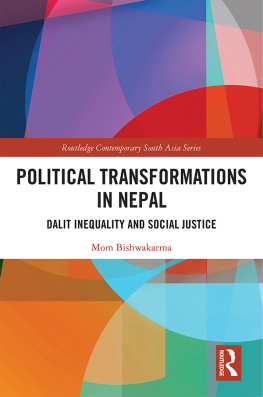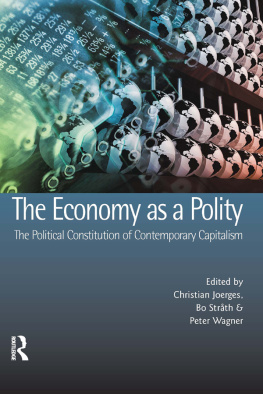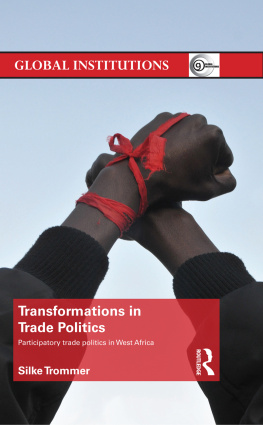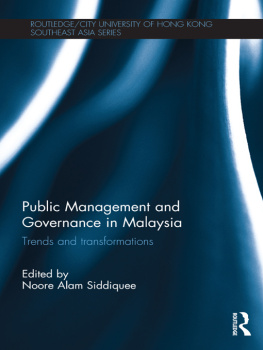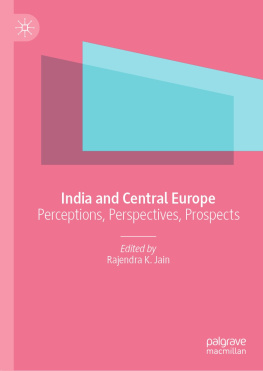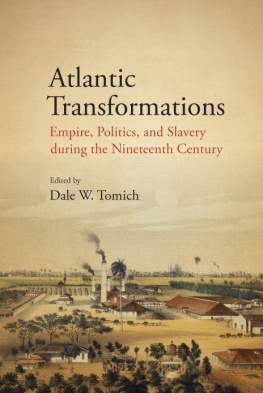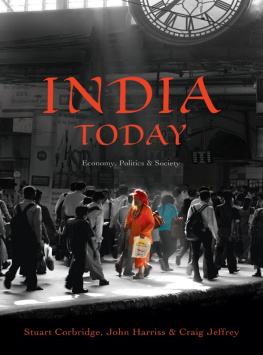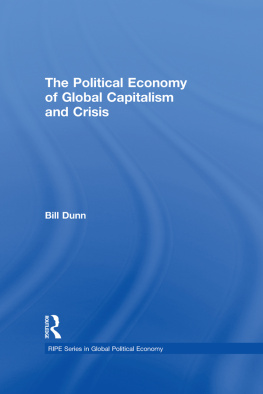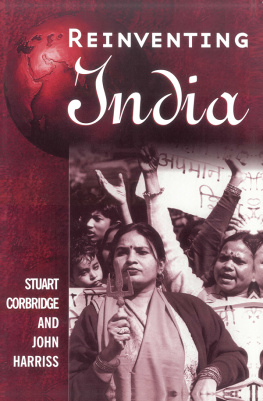
Understanding Indias
New Political Economy
A number of large-scale transformations have shaped the economy, polity and society of India over the past quarter century. This book provides a detailed account of three that are of particular importance: the advent of liberal economic reform, the ascendance of Hindu cultural nationalism and the empowerment of historically subordinate classes through popular democratic mobilizations.
Filling a gap in existing literature, the book goes beyond looking at the transformations in isolation, managing to:
- Explain the empirical linkages between these three phenomena
- Provide an account that integrates the insights of separate disciplinary perspectives
- Explain their distinct but possibly related causes and the likely consequences of these central transformations taken together
By seeking to explain the causal relationships between these central transformations through a coordinated conversation across different disciplines, the dynamics of Indias new political economy are captured. Chapters focus on the political, economic and social aspects of India in their current and historical context. The contributors use new empirical research to discuss how Indias multidimensional story of economic growth, social welfare and democratic deepening is likely to develop. This is an essential text for students and researchers of Indias political economy and the growth economies of Asia.
Sanjay Ruparelia is an Assistant Professor of Politics at the New School for Social Research in the US. His current research examines the politics of the broader Indian left in contemporary Indian democracy in the wake of economic liberalization and Hindu nationalism.
Sanjay Reddy is an Associate Professor of Economics at the New School for Social Research in the US. His areas of work include development economics, international economics and economics and philosophy.
John Harriss is Professor of International Studies at Simon Fraser University, Canada. His current research concerns Indias social policy in the context of liberalization.
Stuart Corbridge is Professor of Development Studies at the London School of Economics and Political Science in the UK. His previous publications include Reinventing India: Liberalization, Hindu Nationalism and Popular Democracy (2000, with John Harriss).
Understanding Indias
New Political Economy
A great transformation?
Edited by Sanjay Ruparelia,
Sanjay Reddy, John Harriss,
and Stuart Corbridge
First Published 2011
by Routledge
2 Park Square, Milton Park, Abingdon, Oxon, OX14 4RN
Simultaneously published in the USA and Canada
by Routledge
711 Third Avenue, New York, NY 10017
Routledge is an imprint of the Taylor & Francis Group, an informa business
2011 Sanjay Ruparelia, Sanjay Reddy, John Harriss and Stuart Corbridge
for selection and editorial matter, individual contributors; their contributions
The right of Sanjay Ruparelia, Sanjay Reddy, John Harriss and Stuart
Corbridge to be identified as the authors of the editorial material, and of the
contributors for their individual chapters, has been asserted in accordance
with sections 77 and 78 of the Copyright, Designs and Patents Act 1988.
Typeset in Times by
Pindar NZ, Auckland, New Zealand
Printed and bound in Great Britain by
TJ International Ltd, Padstow, Cornwall
All rights reserved. No part of this book may be reprinted or reproduced or
utilised in any form or by any electronic, mechanical, or other means, now
known or hereafter invented, including photocopying and recording, or in
any information storage or retrieval system, without permission in writing
from the publishers.
British Library Cataloguing in Publication Data
A catalogue record for this book is available from the British Library
Library of Congress Cataloging in Publication Data
Understanding Indias new political economy : a great transformation? /
edited by Sanjay Ruparelia [et al].
p. cm.
Includes bibliographical references and index.
1. IndiaEconomic conditions1991- 2. Social changeEconomic
aspectsIndia. 3. Economic developmentSocial aspectsIndia. I.
Ruparelia, Sanjay.
HC435.3U53 2011
320.954dc222010037065
978-0-415-59810-1 (hbk)
9781136816482 (ebk)
Contents
| 1. |
STUART CORBRIDGE, JOHN HARRISS, SANJAY RUPARELIA
AND SANJAY REDDY |
| 2. |
| PARTHA CHATTERJEE |
| 3. |
| NANDINI GOOPTU |
| 4. |
| ROB JENKINS |
| 5. |
| STUART CORBRIDGE |
| 6. |
| ARJUN JAYADEV, SRIPAD MOTIRAM AND VAMSI VAKULABHARANAM |
| 7. |
| VAMSI VAKULABHARANAM AND SRIPAD MOTIRAM |
| 8. | How far have Indias economic reforms been guided by compassion
and justice? Social policy in the neoliberal era |
| JOHN HARRISS |
| 9. |
| NIRAJA GOPAL JAYAL |
| 10. | Making citizens from below and above: the prospects and challenges
of decentralization in India |
| PATRICK HELLER |
| 11. |
| RADHIKA DESAI |
| 12. |
| SANJAY RUPARELIA |
| 13. |
| JAMES MANOR |
| 14. | Indian foreign policy since the end of the Cold War: domestic
determinants |
| ACHIN VANAIK |
Contributors
Partha Chatterjee is Professor of Political Science, Centre for Studies in Social Sciences, Calcutta, and Professor of Anthropology, Columbia University, New York. His most recent book is The Politics of the Governed: Reflections on Popular Politics in Most of the World (2004).
Stuart Corbridge is Professor of Development Studies, London School of Economics. His most recent monograph (with Glyn Williams, Manoj Srivastava and Rene Veron) is Seeing the State: Governance and Governmentality in India (2005).
Radhika Desai is Professor of Political Studies, University of Manitoba. Her books include Slouching Towards Ayodhya: From Congress to Hindutva in Indian Politics (2004) and Developmental and Cultural Nationalisms (2009). She is a co-editor of the Future of Capitalism book series, Pluto Press.
Nandini Gooptu is University Reader in South Asian Studies and Fellow of St Antonys College, Oxford. She is the author of The Politics of the Urban Poor in Early Twentieth-Century India (2001).
John Harriss is Professor of International Studies, Simon Fraser University, Vancouver. His most recent book is Power Matters: Essays on Institutions, Politics and Society in India (2006).
Patrick Heller is Professor of Sociology and International Studies, Brown University. He is the author of The Labor of Development: Workers in the Transformation of Capitalism in Kerala, India (1999) and co-author of Social Democracy in the Global Periphery: Origins, Challenges, Prospects (2006).


